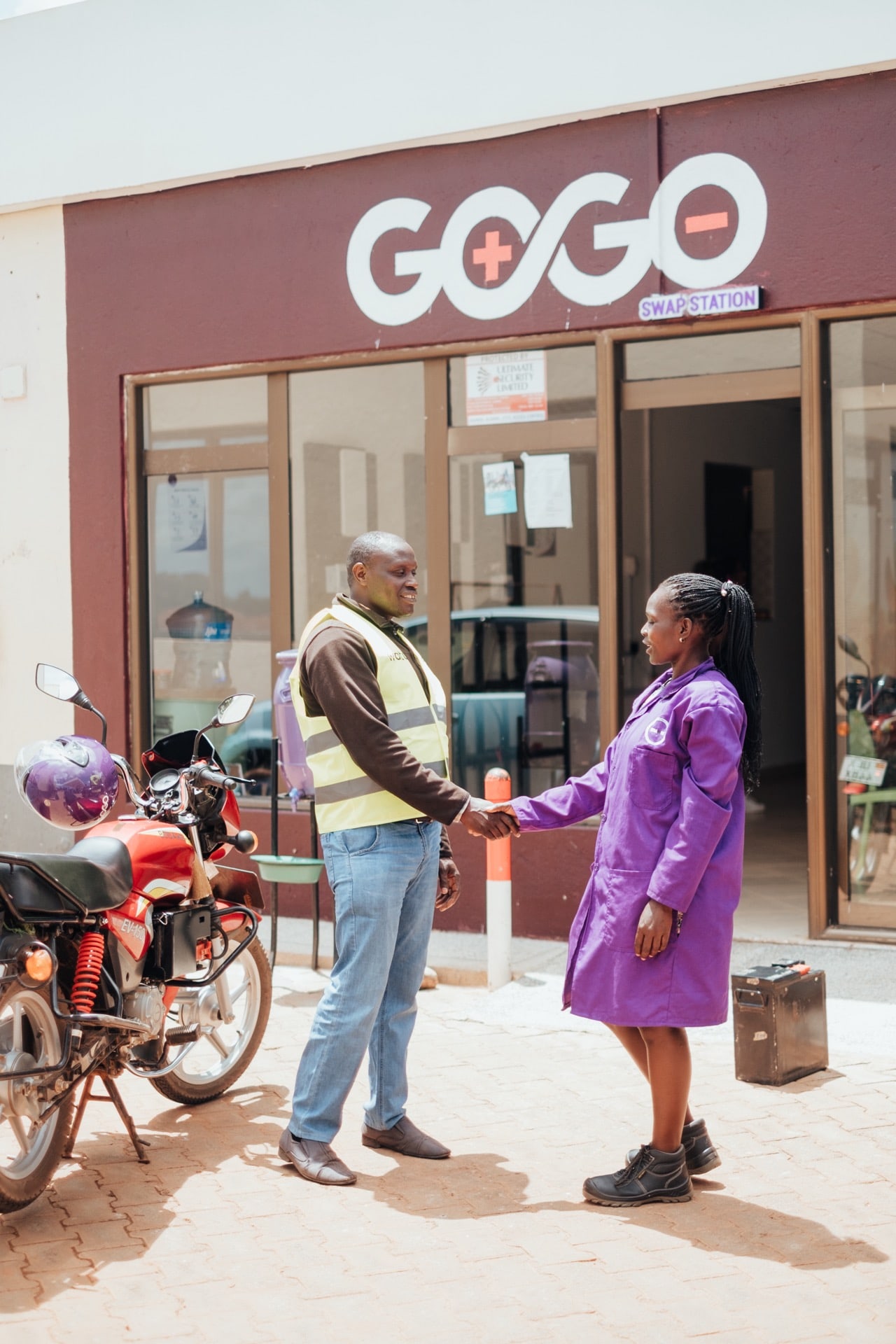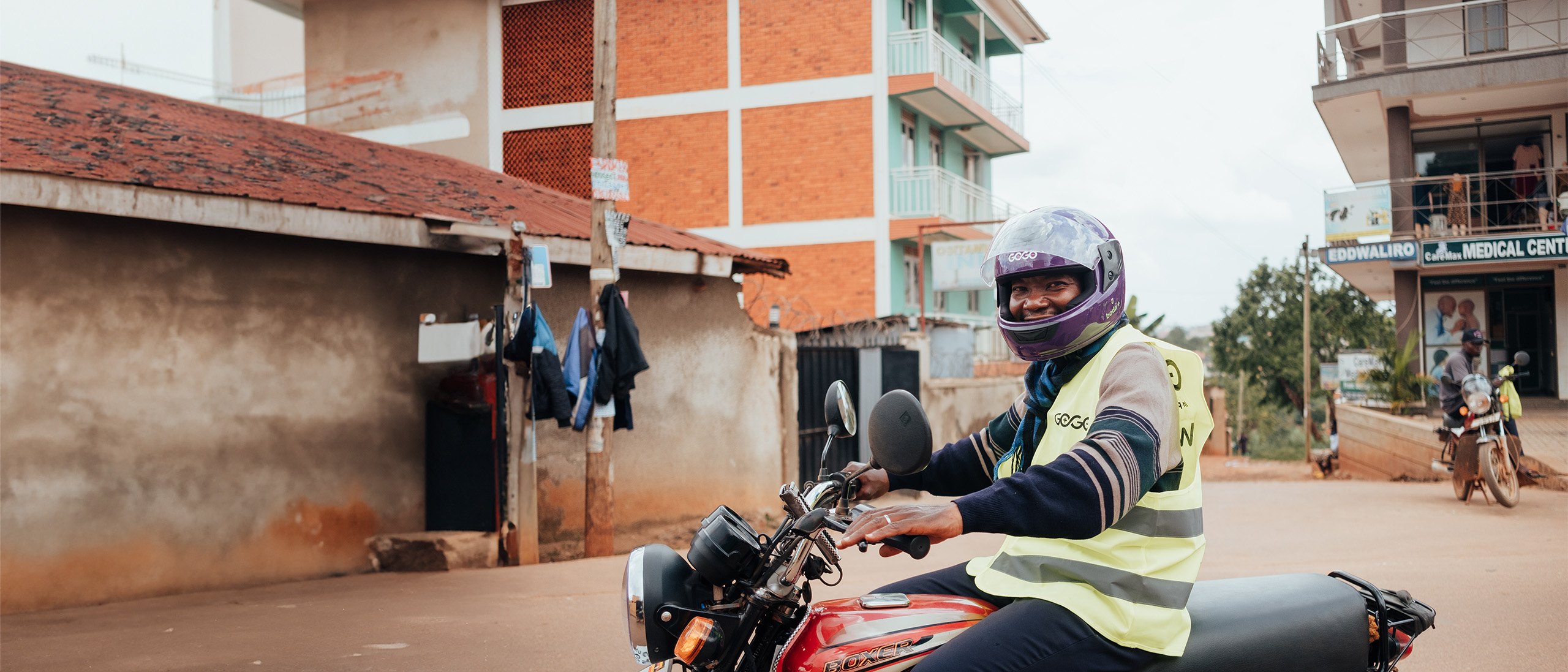
We Are Boosting Financial Independence
Our products and services support our customers to make more money. Our customers (motorcycle taxi operators) report a 40% – 50% income increase compared to the petrol powered counterparts. Cost savings are attributed to reduced energy and maintenance costs.
Customers are able to access our electric motorcycles through affordable and flexible financing (”lease to own”) facilitated by our strategic partnership with watu credit.
The successful creation of a win-win-win ecosystem and closing of the financing cycle is our approach for a renewable energy transition. If it makes economic sense for the client, the lender and the product & service provider, the transition happens automatically.

A typical 100-150 CCM petrol motorcycle consumes about 3 liters of fuel per 100 km. Each liter of fuel is burnt into roughly 2.3 kg of CO2, the (avoidable) CO2 emissions per 100km are therefore about 7 kg. With an average annual distance covered of 50,000 km, a Ugandan “BodaBoda” emits up to 3.5t of CO2 per year.
Using electric motorcycles, we substitute these CO2 emissions with about 4 kWh of electricity and some battery degradation.
Another benefit is the reduced pollution through smoke particles and disposed lubricants.
Social Sustainability
Empowering Community Livelihoods
Empowering Through Technology Transfer & Training
The DRIVe Project
Developing Relevant and Innovative Skills in e-mobility (DRIVe) project, implemented jointly with GIZ’s Promotion of Renewable Energy and Energy Efficiency Programme (PREEEP) and Employment and Skills for Development in Africa (E4D) programme, and the Ministry of Energy and Mineral Development (MEMD), funded by the Governments of Norway and Germany:
Unleashing Renewable Energy Opportunities
Agr-E-Hub: Facilitating the Productive Use of Renewable Energy (PURE) through next-gen mini-grids that power agricultural mechanization services, funded by PREO Foundation and Stichting DOEN, in Northern Uganda over two years.
Battery-powered agricultural mechanization and mini-grid ecosystem project in the Kisii Community, Western Kenya, over one year.
Electric motorcycles reduce CO2 emissions by replacing petrol bikes, cutting pollution from smoke and lubricants.